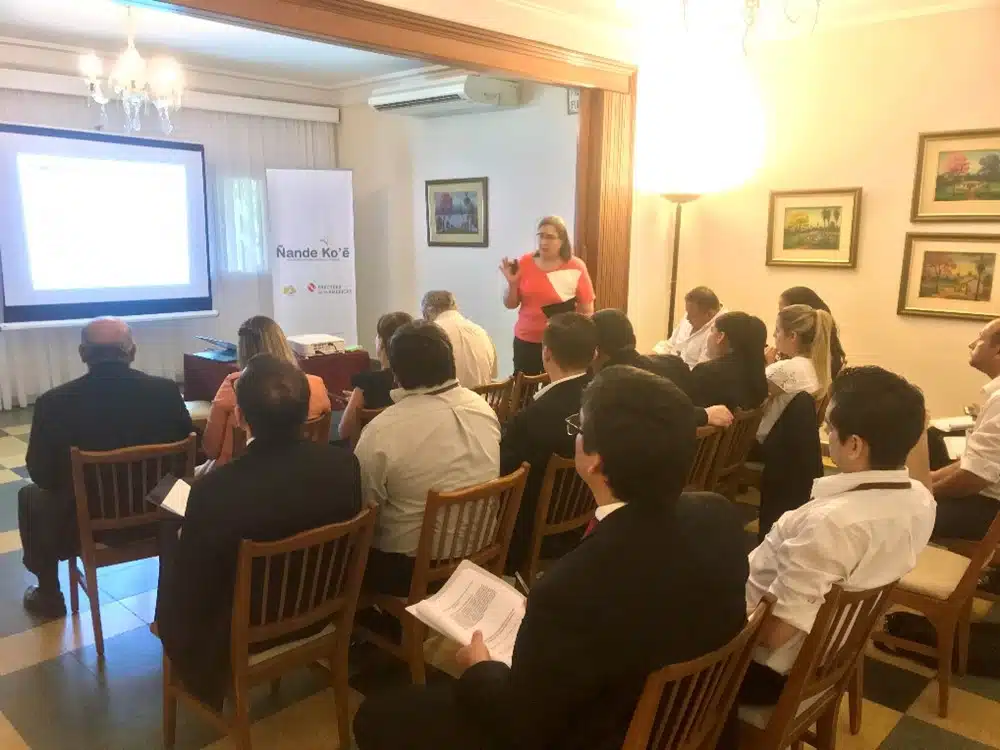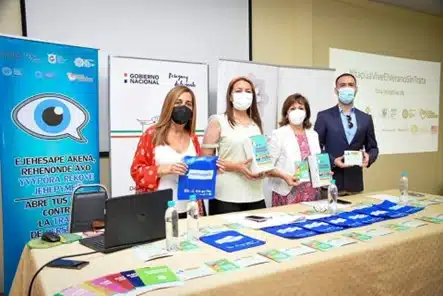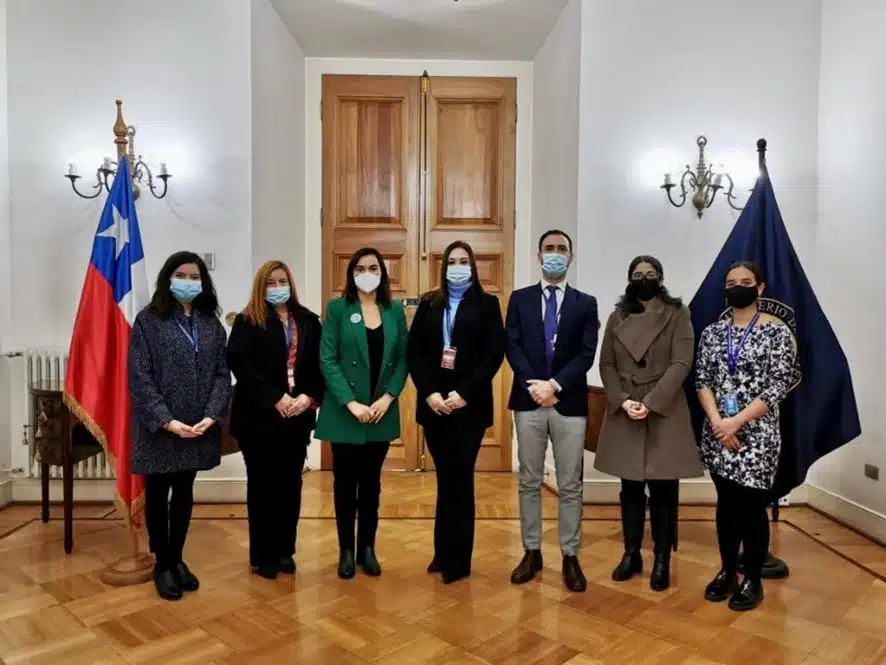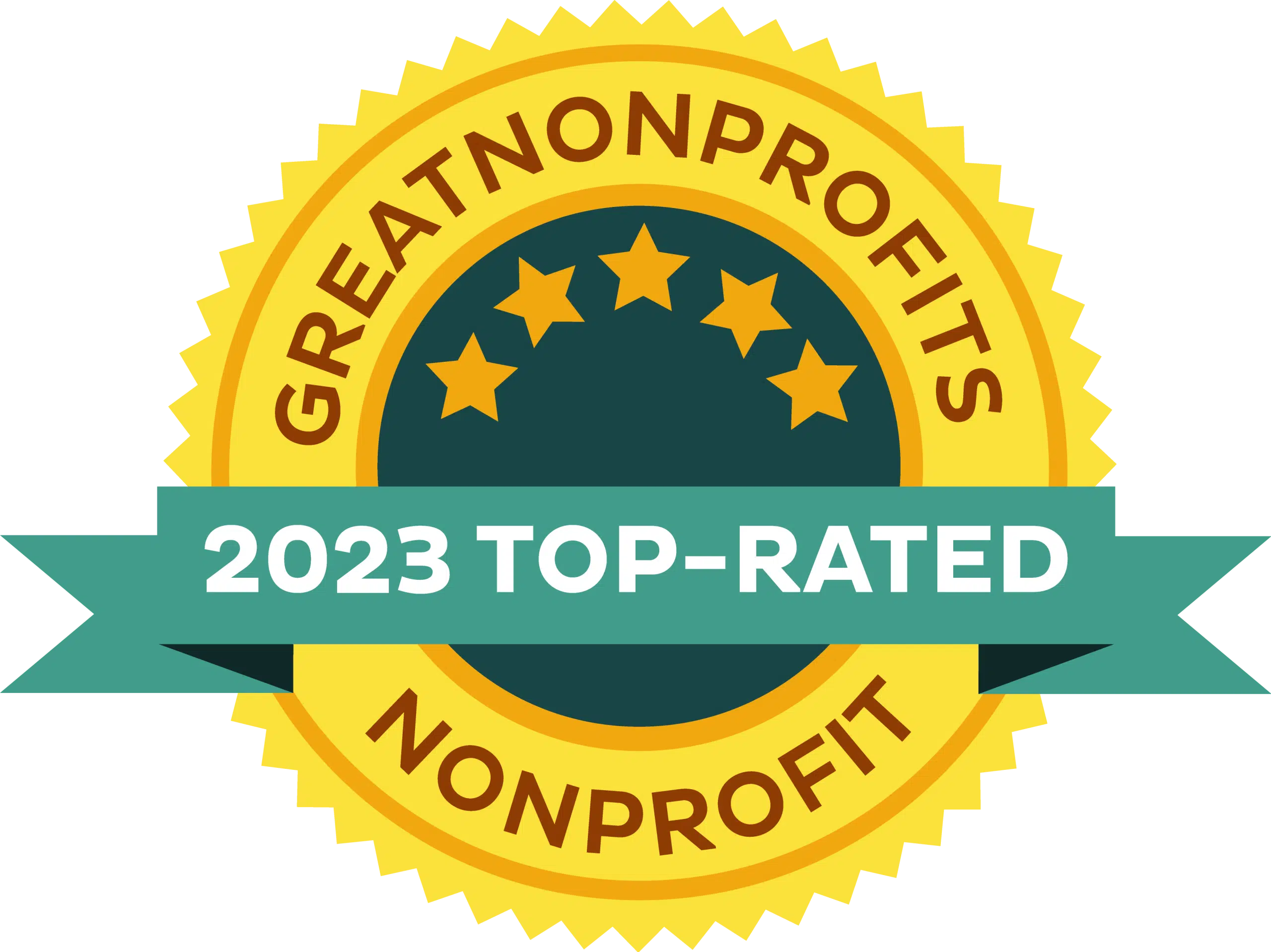July 20 commemorates the International Day Against Trafficking in Persons (TIP). This past February, Partners of the Americas’ U.S. Department of State-funded Ñande Ko’ẽ project (“Our Sunrise” in the Indigenous Guaraní language), closed after almost four years of working to prevent TIP and protect victims in Paraguay.
The project was designed with a multi-pronged strategy that included awareness-raising, building the capacity of Paraguayan officials, institutionalizing new TIP protocols, and facilitating international exchanges of best practices.
Ñande Ko’ẽ delivered targeted trainings to stakeholders and officials in Paraguay, increasing their capacity to both identify cases of TIP and provide protection and support to victims. The project provided trainings to 543 local officials from the departments of Caaguazú and Itapúa. Trainings covered the prevention of TIP of children in Caaguazú and TIP risks associated to the tourism sector in Itapúa. An additional 292 national officials were trained on the conceptual framework of TIP, including Paraguay’s Comprehensive Anti-Trafficking Law and applicable international treaties.
Ñande Ko’ẽ’s project specialist delivers a training to Paraguayan labor inspectors on the identification and prevention of TIP.
Ñande Ko’ẽ’s strategy also featured awareness-raising activities targeted to Paraguayan populations and regions most at risk for TIP victimization. Over 250,000 people were reached by virtual and in-person campaigns. The project coordinated in-person activities to raise awareness of TIP at popular events such as the Encarnacion Carnival and in popular tourist destinations, providing information on how to identify and report TIP. Social and traditional media campaigns were coordinated by the project and partner stakeholders.
Ñande Ko’ẽ participates in the Abre tus Ojos contra la Trata de Personas awareness-raising initative, implemented by the Office of the First Lady of Itapúa to educate teachers, students, and school officials on TIP prevention.
In 2022, Ñande Ko’ẽ began coordinating with the Paraguayan Ministry of Social Development to incorporate education on TIP risks into initiatives to support impoverished families through the state’s Tekoporã conditional cash transfer program. Government officials and community leaders were provided with information on TIP to distribute to participating families who, particularly in the context of the COVID-19 pandemic, are vulnerable to recruitment by trafficking networks.
Ñande Ko’ẽ supported Paraguay’s Inter-Institutional Working Group in the development of the National Plan for the Prevention and Combat of TIP. The drafting of the National Plan represents a historical milestone for both the Working Group and the Government of Paraguay, which officially approved and adopted the National Plan on December 14, 2020.
In addition to the Ministry of Social Development and the Working Group, Ñande Ko’ẽ engaged other key Paraguayan government entities in its activities and initiatives, including the Ministry of Women (MOW) and the Ministry of Children and Adolescence (MCA). The project helped both to develop their own manuals for caring for TIP victims, which were adopted and now inform how these entities identify, engage with, and provide continued protection to survivors. The project also assisted in the development and implementation of a National TIP Referral Mechanism, providing information for its contents and trainings to officials on its use.
Additionally, Ñande Ko’ẽ facilitated the signing of a memorandum of understanding between the MOW and the Undersecretary of Crime Prevention of the Chilean Ministry of the Interior (MI). These two entities participated in an international exchange of best practices to prevent and combat TIP. After a meeting in Santiago, Chile in 2022, MOW officials expressed the importance of applying the practices and knowledge gained from their exchange with the MI to improve their ability to protect Paraguayans from TIP.
Representatives from the MOW, MI, and Ñande Ko’ẽ participate in an in-person exchange of best practices to prevent and protect victims of TIP in Santiago, Chile.
There is still much work to be done in the fight against TIP in Paraguay and around the world. The successes of the Ñande Ko’ẽ project can serve as best practices for governments, civil society, the public, and other stakeholders to apply to continue to prevent TIP, protect victims, and ensure protection for the human and labor rights of people across Latin America and the World.







